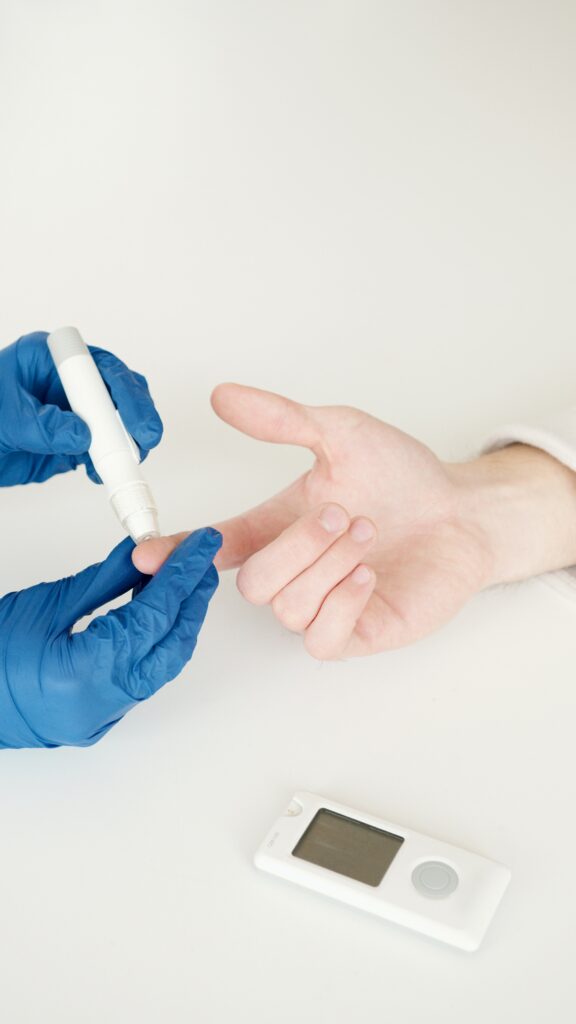Diabetes is a chronic health condition that affects how your body turns food into energy. There are three main types of diabetes:
Type 1 diabetes:
This type of diabetes is caused by the body’s inability to produce insulin. Insulin is a hormone that helps the body use glucose for energy. People with type 1 diabetes need to take insulin injections every day.
Type 2 diabetes:
This type of diabetes is caused by the body’s inability to use insulin effectively. Type 2 diabetes is often associated with obesity, physical inactivity, and family history. People with type 2 diabetes can often manage their condition with diet, exercise, and medication.
Gestational diabetes:
This type of diabetes occurs during pregnancy. It is caused by the body’s inability to produce enough insulin to meet the demands of the pregnancy. Gestational diabetes usually goes away after the baby is born, but it can increase the risk of developing type 2 diabetes later in life.
The symptoms of diabetes can vary depending on the type of diabetes.
Some common symptoms include:
- Increased thirst
- Frequent urination
- Extreme hunger
- Unexplained weight loss
- Fatigue
- Blurred vision
- Slow-healing sores
If you experience any of these symptoms, it is important to see a doctor for testing. Diabetes can be a serious condition, but it can be managed with proper care.
The treatment for diabetes depends on the type of diabetes. People with type 1 diabetes need to take insulin injections every day. People with type 2 diabetes can often manage their condition with diet, exercise, and medication. Gestational diabetes is usually managed with diet and exercise, but sometimes medication is also needed.

In addition to medication, people with diabetes also need to manage their blood sugar levels through self-management.
This includes:
- Monitoring blood sugar levels regularly
- Eating a healthy diet
- Exercising regularly
- Taking medication as prescribed
- Taking care of their feet
Managing diabetes can be challenging, but it is important to remember that it is possible to live a long and healthy life with the condition. By following a treatment plan and taking care of yourself, you can prevent serious complications of diabetes, such as heart disease, stroke, blindness, and kidney disease.
If you have diabetes, there are many resources available to help you manage your condition. Your doctor can provide you with information and support. There are also many online and in-person support groups available.
Living with diabetes can be a rewarding experience. By taking care of yourself and managing your condition, you can live a long and healthy life.
Here are some additional tips for living with diabetes:
- Get regular medical checkups.
- Learn how to check your blood sugar levels and how to manage your blood sugar levels.
- Eat a healthy diet that is low in sugar and high in fiber.
- Exercise regularly.
- Take your medication as prescribed.
- Take care of your feet.
- Manage stress.
- Talk to your doctor about any concerns you have about living with diabetes.
By following these tips, you can live a long and healthy life with diabetes.



Pingback: Better Your Health: Diabetes with the Perfect Balance(p.2)